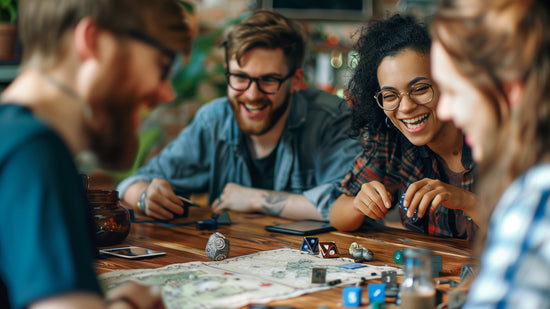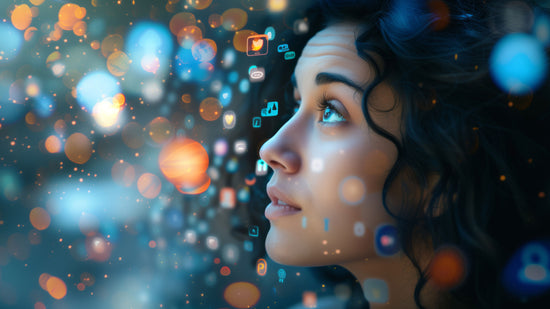Fully AI-generated influencers, often referred to as virtual or digital influencers, are computer-generated characters that are designed to resemble real humans. These digital models are created using advanced computer graphics, animation techniques, and artificial intelligence algorithms. They are then used on social media platforms to share content, interact with users, and promote products or brands. Their popularity and success in accumulating millions of followers on social media is a reflection of this day and age.
The acceptance and interest in AI-generated influencers highlight the rapid technological advancements in artificial intelligence, but beyond that, this movement underscores not only the power of effective marketing strategies (brands and marketers are leveraging these digital personas to promote products and services) but also a widespread desire for escapism that saturates today’s society - millions of followers engage with digital beings as if they were real because of a made-up world that might feel perfect, posed, and way more fantastic than their real lives. Real life can be hard for numerous reasons, and fulfilling relationships in the real world require intentionality and dedication. Getting the dopamine from virtual interactions instead of real-world ones is "easier".
AI-generated influencers offer a controlled and idealized image. This promotes the perpetuation of unrealistic standards (be it of beauty, social life or economic status), which can be dangerous, especially for young minds still being shaped. Real life is beautifully messy, and relying on digital perfection as a role model will inevitably result in feelings of inadequacy that can affect an entire generation.

The increase in the number of such influencers also prompts discussions about ethical considerations. It raises questions about transparency and authenticity. Instagram, for example, is currently considering requiring AI disclaimers to be included in posts generated partially or fully by artificial intelligence. This may be an important safeguard, but it will likely not be a redeeming solution. An important aspect to be considered is that AI is only a tool, and despite all cinematic predictions produced by Hollywood, it has not achieved sentience. In other words, the content and context in which these AI influencers appear in the digital realm were created by very real humans. So here is the consideration: who is really influencing all of these followers? If Shudu, Lil Miquela, Imma, and others are simply digital marionettes, whose content is actually being consumed?
We can spend hours reflecting about all the negative impact this wave can have on us, so let's shift gears and talk about what we can do about it. How do we maintain sanity and authenticity in a world that is gradually being consumed by an uncharted virtual reality? The answer is simple: unplug. Physically turning your phone off during your offline hours, physically shutting your laptop down, and moving to another room when you are done with work, disconnecting from the digital realm and focusing on the real world around you in real life - that is the key.
When I was young, I heard a story about a man whose job was to detect counterfeit dollar bills. He was the best at what he did, and nobody could spot a fake dollar like him. One day he was at a bank doing his job and analyzing bills that were believed to be counterfeit. The bank manager was impressed by how good he was, and asked him “How long have you been studying counterfeit money?” He simply answered, “I’ve never spent a single minute studying a fake dollar bill.” The manager was confused. “Then how are you so good at spotting counterfeits?” The man’s response was “I’ve spent years of my life learning everything there is to know about the real dollar. So when I come across something that is not the real thing, it’s easy to see it.”
I’ve carried this little analogy with me for years - it can be applied to so many things in life, and it seems to have a fitting place in the era of AI. Living fully and intentionally in the physical will give us a better mind to identify the fake (or digital) when we see it.
FOOD FOR THOUGHT
Whose content are you consuming lately? What real things can you spend your time with in life so you can be equipped to spot when something artificial comes your way?

An accomplished translator and writer, Cami has been in the creative field for nearly two decades. Her experience as a linguist in several fields, paired with her background as a native Latina immigrant (born and raised in Brazil and naturalized American citizen) gives her a unique perspective on the social and cultural context of our society. She has been with Techless since 2022 and currently lives in Michigan with her husband of twelve years, their eight-year-old son, and their puppy Oreo.



